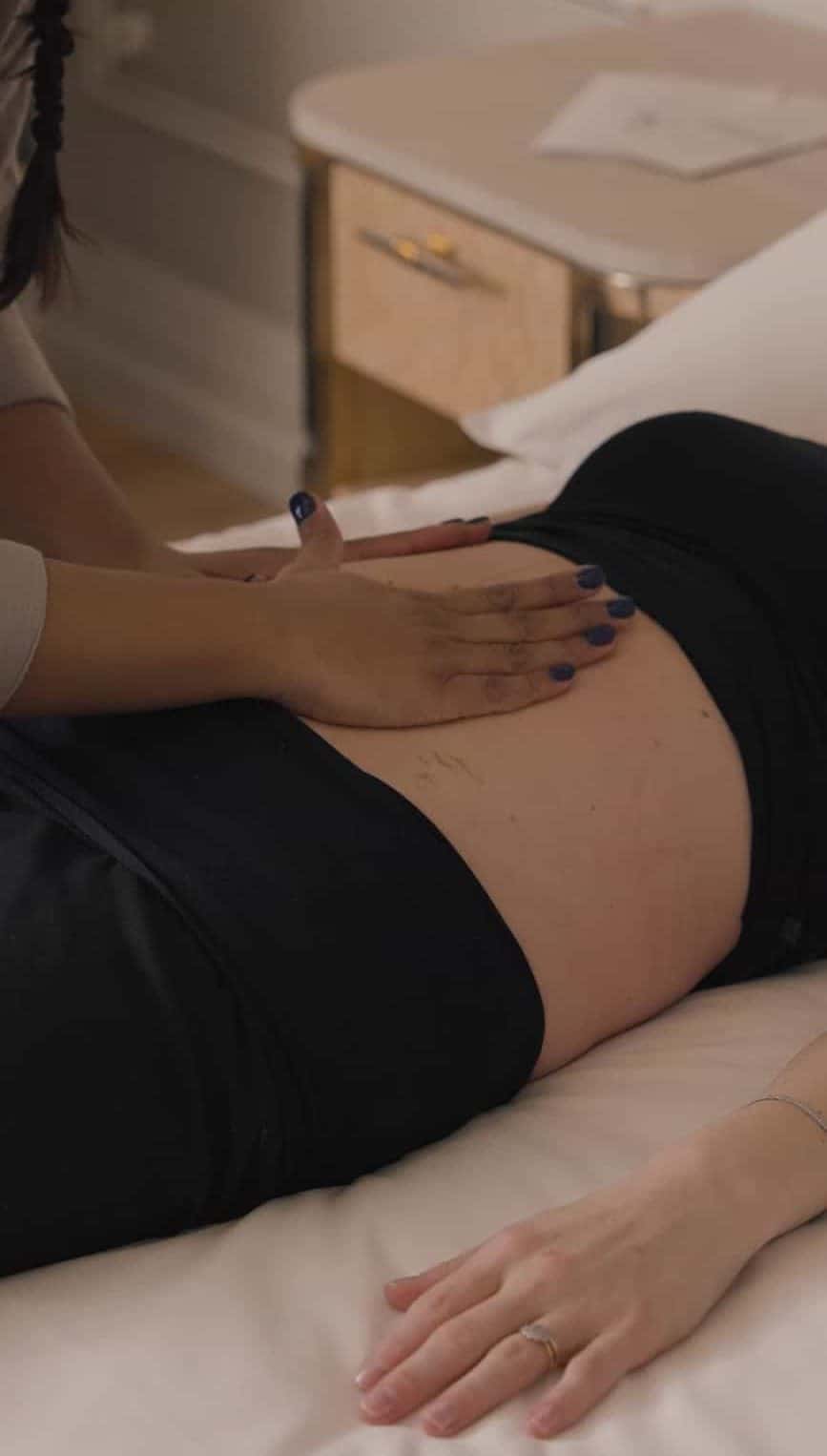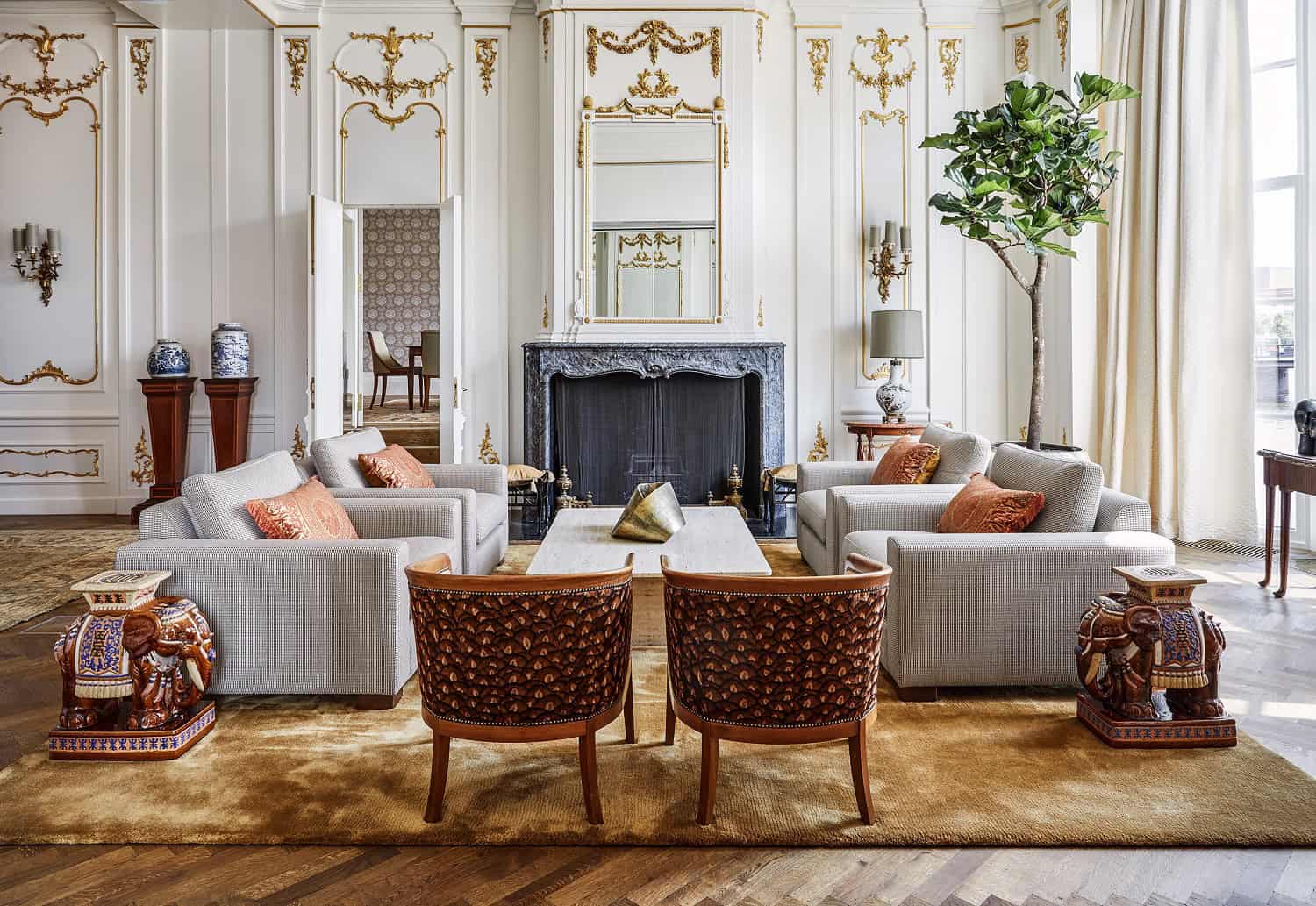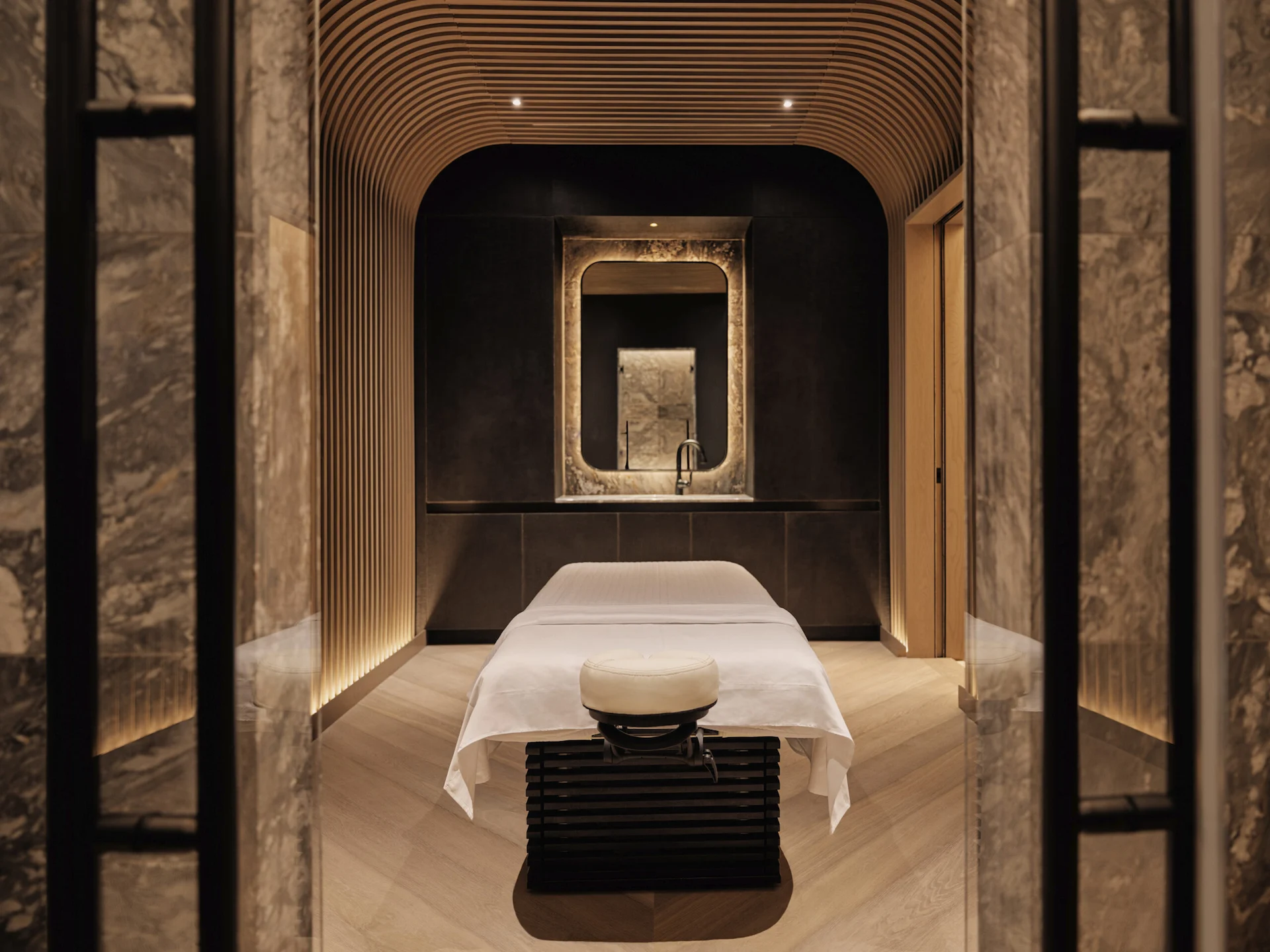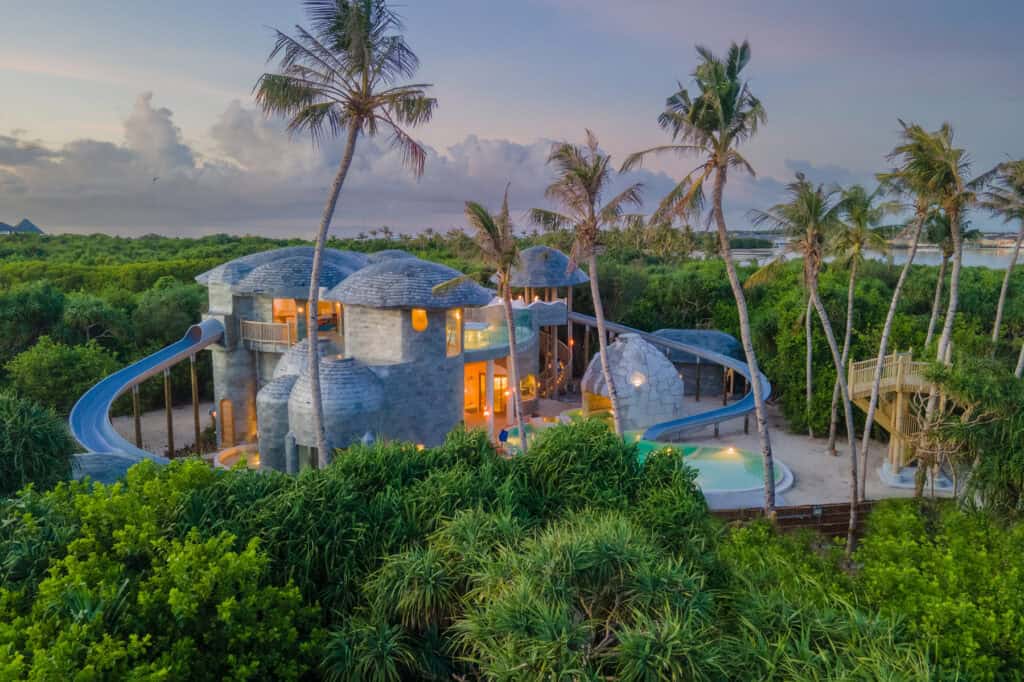When Hiba Siddiqui left her role as Chief Commercial Officer at Threads Styling, following a high-profile career with Gucci and Farfetch, few could have predicted her next chapter would be as personal as it was pioneering. But motherhood has a way of reshaping priorities—and for Siddiqui, it also reshaped her mission. In January 2025, she unveiled The Tenth at the Mandarin Oriental Hyde Park: London’s first luxury postpartum retreat, where mothers are invited to recover, recalibrate, and reconnect in a setting that marries centuries-old traditions with contemporary five-star hospitality.
Drawing on her own postpartum experience, Siddiqui set out to create a sanctuary where rest and restoration are not indulgences, but essentials. The result is an all-encompassing programme of 24/7 newborn care, evidence-based treatments, traditional healing therapies, and mother-and-father-focused support, all delivered by a team of best-in-class experts. In this conversation, she shares the inspiration behind The Tenth, how cultural heritage shaped her approach, and why she believes postpartum care is ready for a long-overdue renaissance.

You’ve spoken candidly about your own postpartum experience inspiring The Tenth. Can you share the moment when the idea crystallised for you—and how you began turning that vision into reality?
The moment didn’t arrive in a dramatic flash, but as a quiet, exhausted realisation: something was deeply broken. I had entered motherhood prepared for birth, but completely unprepared for everything that followed. The care, the support, the structure—it simply wasn’t there.
I remember thinking: how is it that in a city like London, mothers are left to navigate this alone?
That seed of frustration quickly grew into purpose. I started speaking with other mothers and kept hearing the same stories—feelings of overwhelm, of invisibility. And that’s when the idea took hold: what if there were a space where the mother remained at the centre? Where recovery, rest, and rebuilding confidence weren’t luxuries, but a given?
That’s how The Tenth began.
See also: The Ranch Hudson Valley: A High-Performance Wellness Retreat, Just An Hour Away From NYC

How did your cultural heritage influence your approach to postpartum care, and how did you blend those traditional practices with a modern luxury experience?
In my culture, as in many traditional cultures, there’s a deep understanding that the mother needs just as much care and support as her newborn. She, too, is undergoing a profound transition—one that calls for her to be held, nourished, and gently supported as she steps into her new role. It’s common for women to return to their mother’s home for an extended period after birth, surrounded by the women of the family and cared for with warming foods, healing rituals, and practical, loving support.
Of course, that kind of full retreat isn’t always possible in modern life—especially in the West, where so much of the focus is on the baby, and the mother is expected to bounce back almost immediately.
With The Tenth, I wanted to reimagine those traditions for the world we live in today. We’ve preserved the spirit of deep, maternal care, but paired it with thoughtful, contemporary luxury. From our treatment protocols—which combine traditional practices like abdominal wrapping and herbal therapies with evidence-based physiotherapy and emotional wellbeing support—to our menus, which are rooted in the principles of warmth and replenishment but adapted for a modern palate, every detail has been intentionally designed.
We’ve also created space for partners. They’re more involved than ever, yet often unprepared for the emotional and practical complexities of this period. Our experience helps guide them, too—offering tools, insights, and confidence to support their partners in a truly meaningful way.

The Tenth places the mother’s rest and recovery at the centre—something often overlooked in Western postpartum care. How did you curate the retreat’s wellness offering to reflect this priority?
We started by asking: what does a new mother truly need to recover, not just physically, but emotionally and mentally too? Our goal wasn’t surface-level pampering, but meaningful, functional support to help women rebuild their strength and navigate the shift into motherhood with confidence.
To curate the offering, we focused on four core themes: clinical recovery, emotional wellbeing, nutrition, and education. We brought together best-in-class practitioners across every relevant discipline, from women’s health physios and midwives to clinical psychologists, nutritionists, lactation consultants, and traditional healers. At The Tenth, we believe in the power of the collective, so we built a 360-degree programme where every treatment, conversation, and moment of care is interconnected and intentional.
Everything is designed to ease pressure on the mother, not by taking the experience of new motherhood away from her, but by giving her the space, structure, and support to be present within it. She has the chance to bond with her baby without the burden of constant decision-making, to receive care from experts without having to seek it out, to process her birth, nourish her body, and be looked after in a way that’s as thoughtful as it is instinctive. When mothers are truly supported, particularly at their most vulnerable, families thrive.
See also: Amanpulo, Palawan: The Philippines’ Most Exclusive Wellness Island Retreat

Why was it important to include services like 24/7 baby care and paternal support, in addition to mother-focused wellness?
Recovery doesn’t happen in isolation. A mother’s ability to heal is shaped by the support around her, both emotional and practical. Our 24/7 newborn care is there to offer gentle, flexible support in those early days. It creates pockets of space for a mother to rest, nourish herself, and be cared for, and she can lean into that support as much or as little as she wants. It’s entirely at her pace, designed to ease her into motherhood while still allowing her to rest, recover, and bond on her own terms.
And the same applies to partners. The postpartum period can bring high levels of anxiety and uncertainty for them, too, but they’re rarely given the space to process or prepare. Through calm, expert-led workshops and open dialogue, we help equip them with tangible tools to support their partners and navigate their own transition into parenthood. It’s about creating balance, confidence, and a deeper sense of shared connection from the very beginning.

You describe The Tenth as a curated community. How do you foster connection between new mothers during their stay, and why is that peer connection important?
There’s something deeply healing about being in the company of other women who are navigating the same season of life. We wanted to create a space where mothers could connect—not just through their babies, but through the often unspoken experiences of early motherhood: the identity shifts, the emotional overwhelm, the quiet questioning of “Who am I now?”
That’s why community is a thoughtful part of what we offer—always intentional, never forced. We recognise that some women draw strength from shared connection, while others need solitude to process and heal. So we make space for both. From gentle group walks in the park to expert-led sessions and a communal mothers’ lounge with tea and nourishing snacks, we offer soft invitations for connection—always optional, never expected.
Often, the most powerful moments come when someone simply says, “Me too.” That recognition—that sense of not being alone—can be as restorative as any treatment. Our hope is that every guest leaves not only more rested, but also more seen, more understood, and more connected—to herself, and to a quiet community of women walking beside her.

What role does education play in empowering new parents during the retreat—and what gaps in knowledge or support do you often see in your guests?
Education is foundational. So many of our guests arrive saying, “I wish someone had told me…” — about feeding, healing timelines, emotional changes, and everything in between. Prenatal classes can provide a helpful overview, but nothing builds confidence like learning in real time, with expert support and the opportunity to practise. That’s what we offer: calm, respectful, evidence-based guidance delivered when it’s most relevant and needed.
Our sessions cover everything from lactation and pelvic floor health to emotional wellbeing, infant sleep, and the identity shifts that can take new mothers by surprise. But education isn’t just about learning how to care for your baby—it’s also about understanding your own recovery. When mothers are equipped with knowledge about what’s happening in their bodies and minds, they feel less overwhelmed and more grounded in their instincts.
We’re not here to fill a knowledge gap for the sake of it—we’re here to help women and their families make sense of a new chapter. One that often begins without a clear roadmap.
See also: Akala Dubai: The World’s First Precision Wellness Destination Is Set To Open In 2029

Where are your top five places to recharge and reset in London?
For nature and headspace, I go for a long walk through Hyde Park, especially in the early morning when the city is still quiet.
For a true reset, I get a facial with Hadda at Minimal by Hadda and a massage at the Mandarin Oriental Hyde Park’s spa—the combination of ritual and care always leaves me feeling restored.
For movement, I do reformer Pilates with Shideh at Matt Roberts. It’s focused and grounding—a reminder that strength doesn’t have to be loud.
For reconnection, I love going for a lingering lunch with a girlfriend, ideally somewhere cosy and unfussy, with great food and no pressure to rush.
And for joy, I spend time with my son. Feeding the ducks, kicking a ball in the park, or simply sitting in the garden—small things that pull me into his world and remind me to slow down.

Why did you choose the Mandarin Oriental Hyde Park as the flagship location, and how did that partnership come about?
We sought a hospitality partner that understands true luxury in the postpartum period is defined by intention, care, and calm. Mandarin Oriental Hyde Park brings a strong focus on wellness and a level of thoughtful, discreet service that felt deeply aligned with our mission.
The location itself also held personal meaning. In my own postpartum recovery, daily walks through Hyde Park offered a quiet sense of grounding and renewal. Being able to offer that same connection to new mothers felt both symbolic and essential. From the outset, the Mandarin Oriental team embraced our vision for reimagining luxury hospitality through a postpartum lens. It was a bold concept, but they recognised its importance and have been thoughtful, committed partners in helping us shape something truly new. That early belief meant everything.

What has surprised you most since launching The Tenth—whether from guest feedback, industry response, or personal growth?
Some of the most powerful validations for what we’re building have come from second-time mothers. These are women who’ve lived through postpartum before—who arrive knowing what it entails and what they think they’ll need. And still, they leave completely floored by the depth of care, the coherence of the programme, and how profoundly it shapes their experience. Even for the most seasoned mothers, the intentionality behind what we offer feels transformative. It’s affirmed that what we’ve built isn’t just supportive—it’s redefining the standard.
That response, and the consistency of it, has revealed just how universal postpartum needs truly are. We hear time and again from mothers who want to continue the support at home, or return later in their journey. That growing demand has guided our expansion into at-home offerings, later-stage postpartum programmes, and evolving formats that meet mothers wherever they are, always with the same quality of care and thought.
What’s also been striking is how ready the culture feels for this shift. From obstetricians and wellness leaders to hospitality partners, the press, and new parents themselves, there’s a growing recognition that postpartum care matters—that it deserves structure, attention, and respect.
Watching the world begin to catch up to what we’ve long known—that mothers deserve better—and knowing we’re helping lead that change by setting a new standard of care, has been one of the most meaningful parts of this journey.
See also: Venice Simplon-Orient-Express: The Most Beautiful Way To Travel From Venice To Paris

What’s your long-term vision for The Tenth—how do you hope it will change the conversation around postpartum care in the UK and beyond?
I want The Tenth to become part of the fabric of how we support mothers—not just a beautiful destination, but a catalyst for meaningful, lasting change. That means expanding our care model in ways that are credible, accessible, and scalable: new locations, additional formats, practitioner training, and products rooted in real maternal needs.
However, changing the conversation means going beyond care delivery. It’s also about shifting mindsets and helping society understand that postpartum is not a soft, optional phase, but a foundational one. We want to use our platform to influence policy, shape cultural norms, and ensure postpartum care is prioritised, protected, and properly resourced.
Ultimately, we want to create an ecosystem that meets mothers wherever they are in their journey—one that evolves with them, and helps redefine what support can and should look like. In doing so, set a new standard for postpartum care in the UK and beyond.



